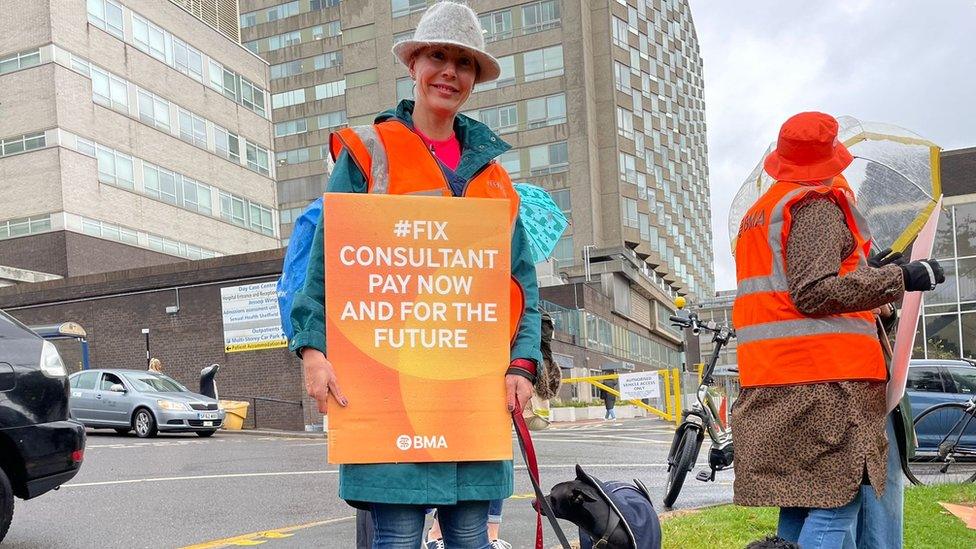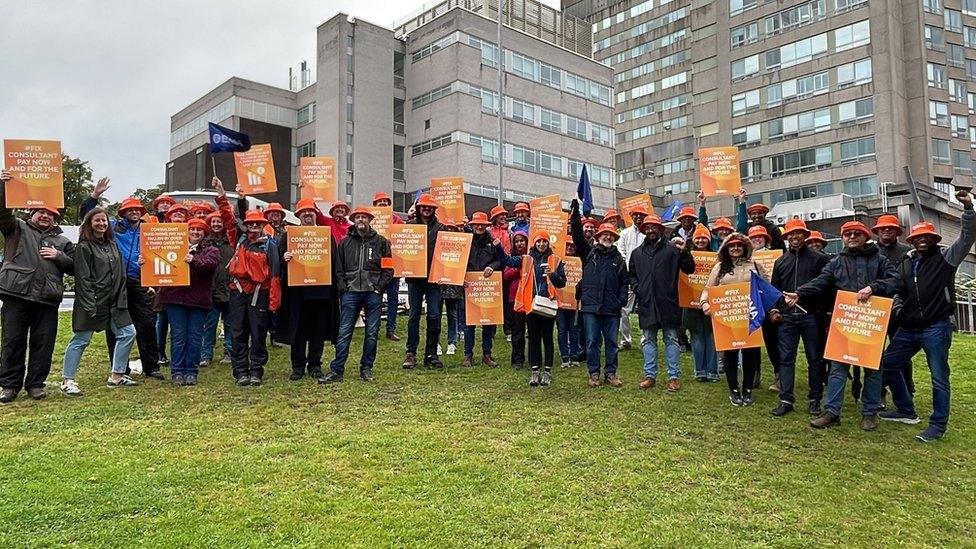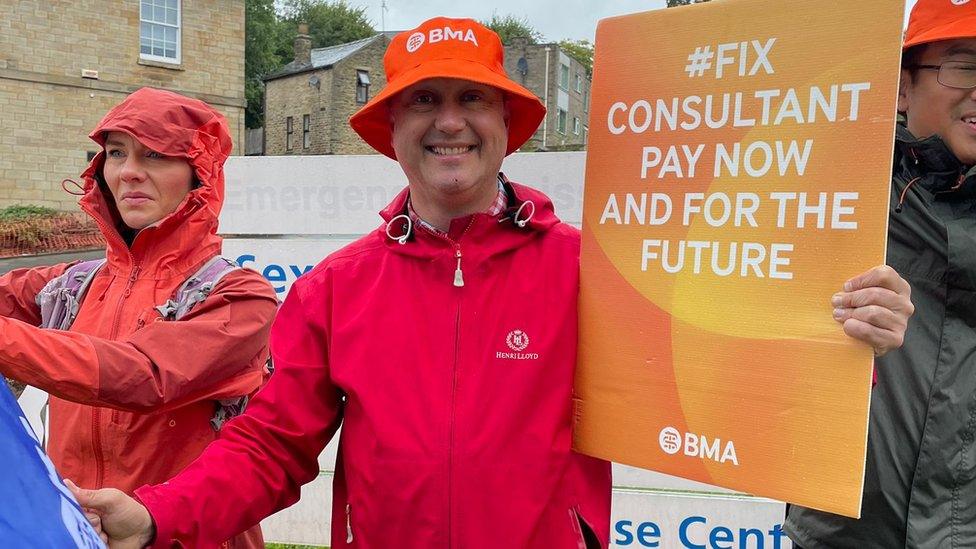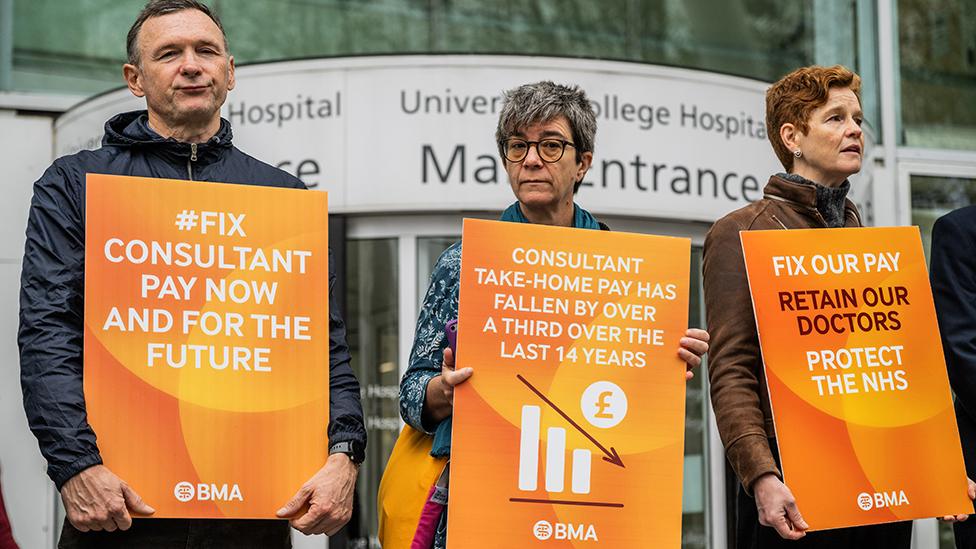NHS strikes show absolute desperation - Sheffield consultant
- Published

Dr Caroline Wilson outside the Royal Hallamshire Hospital in Sheffield
Senior medics say this week's joint strike action by consultants and junior doctors reflects the "absolute desperation" of NHS staff.
Sheffield breast cancer expert Dr Caroline Wilson warned that she feared the NHS could disappear by 2028 if nothing was done.
Consultants in England who walked out on Tuesday will be joined on Wednesday by junior doctors for the first time.
Ministers had previously said the co-ordination of strikes was "callous".
Dr Caroline Wilson, an oncologist at Weston Park Cancer Centre in Sheffield, said the strikes were "not just about pay".
Speaking to BBC Radio Sheffield from the picket line at the city's Royal Hallamshire Hospital, the consultant said: "What it shows is the absolute desperation that we've all got to.
"We are not here just about pay, we are here to save the NHS.
"If something does not change we will not have an NHS in five years."

Consultants began strike action on Tuesday
Last month, the British Medical Association (BMA) announced consultants would strike on 19 and 20 September, with junior doctors joining on the second day.
Additional walkouts are planned by junior doctors on 21 and 22 September with further double strike action scheduled from 2 to 4 October.
The latest strike action will see the cancellation or delay of thousands of operations, procedures and appointments across England.
During their 48-hour walkout, consultants will provide "Christmas Day" cover - emergency services will be staffed and there will be some basic level of cover on the wards.

Dr Paul Egleston, a consultant psychiatrist at the Royal Hallamshire, said seven million people were on waiting lists before the start of the industrial action.
He cited staff shortages and recruitment problems linked to current pay and conditions as driving factors of delays and unhappiness.
Dr Egleston said: "Unfortunately the government are not coming to the table and negotiating with us at the moment but we are here waiting.
"We want to sort the problem, we want to be back in there working but we've got to be out here to try and fix the current crisis first."

Dr Paul Egleston said staff shortages were causing gaps in services
While emergency care will be covered during strike days, NHS bosses have warned of lower staffing levels.
Kirsten Major, chief executive of Sheffield Teaching Hospital said: "We know that in any weekday that junior doctors take strike action we lose 2,300 episodes of patient care every day because we have to cancel that planned care to make sure that we can keep our emergency pathways safe."
Ms Major said the double strike action was "unchartered territory" and a cause for concern should it continue in the next few months.
She said: "We are fearful going into winter, we think all the signs are this will be a tough winter and we really, really need negotiations to resume between the BMA and government."
People are advised to continue to ring 999 in an emergency. For non-urgent treatments or advice, people are asked to call 111.
Health Secretary Steve Barclay previously said the ballot result was "extremely disappointing" and would weigh heavily on the rest of the workforce and patients who were both "shouldering the brunt of the BMA's relentless strike action".
"My door is always open to discuss how we can work together with NHS staff to improve their working lives, but this pay award is final, so I urge the BMA to call an end to this callous and calculated disruption," he said.

Follow BBC Yorkshire on Facebook, external, Twitter, external and Instagram, external. Send your story ideas to yorkslincs.news@bbc.co.uk, external.
- Published20 September 2023

- Published24 August 2023

- Published11 August 2023
